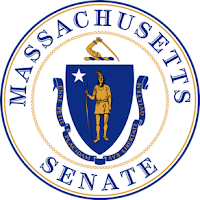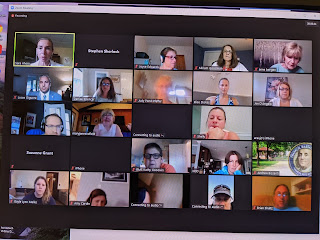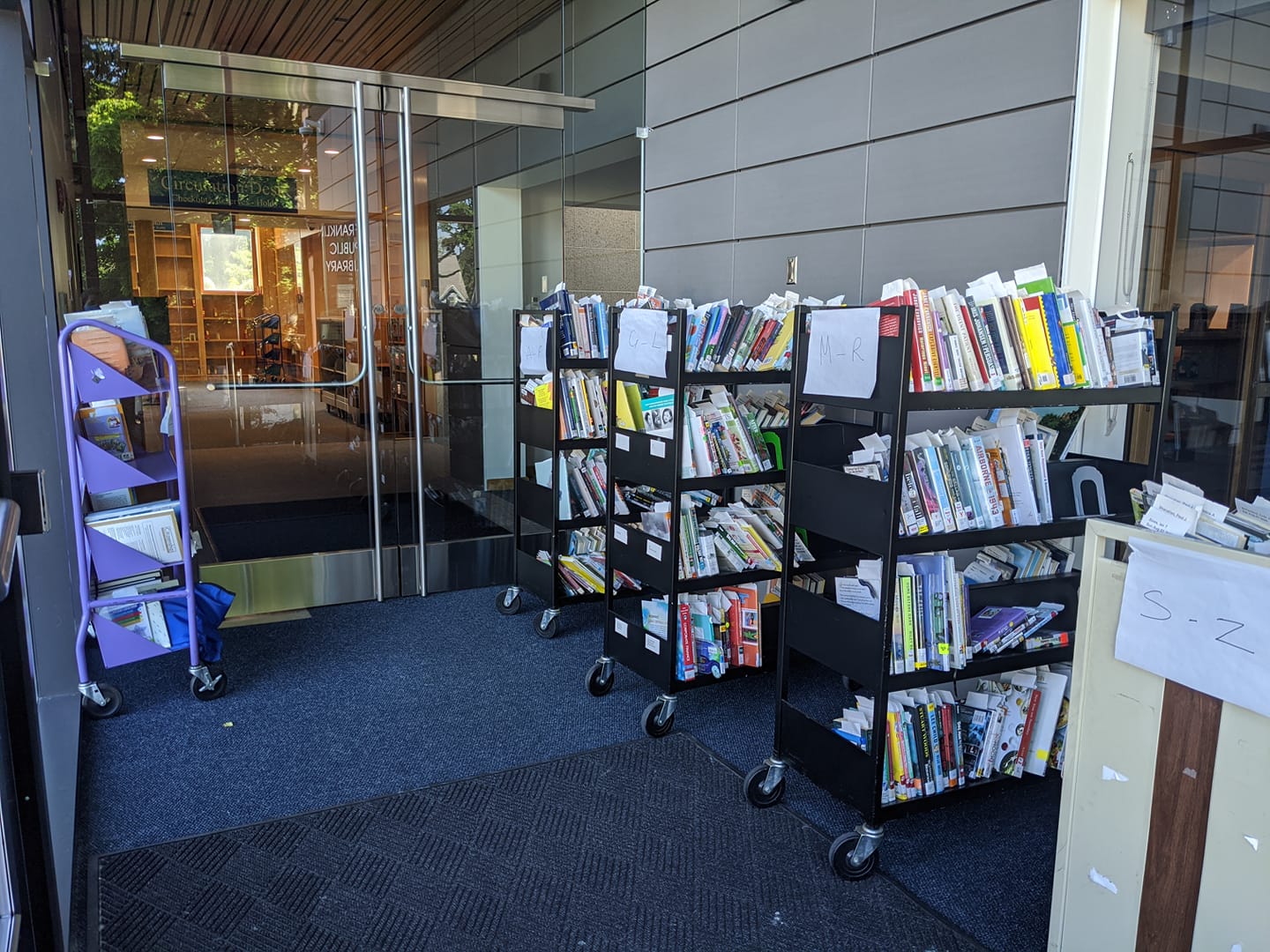Massachusetts Legislature Passes Breakfast After the Bell Legislation
The Massachusetts Legislature on Tuesday passed legislation to fight childhood hunger and boost participation rates in school breakfast programs in schools with high percentages of students from low-income families in the Commonwealth. The bill, An Act regarding breakfast after the bell, would require all public K‑12 schools with 60 percent or more students eligible for free or reduced-price meals under the federal National School Lunch Program to offer breakfast after the instructional day begins.
"Research shows that students who eat a healthy breakfast get better grades, go to the nurse less frequently, and miss fewer days of school," said Senate President Karen E. Spilka (D-Ashland). "Yet, too often, missed meals equal missed opportunities for our children. As a state, we simply cannot accept hungry students as part of our reality. Students who don't eat breakfast start every single day at a very real disadvantage to their peers; passing this bill into law ensures that students across the Commonwealth have equitable access to nutrition to ensure that they start every day right, ready to learn. I'd like to extend my deepest thanks to Senator DiDomenico for his tireless advocacy on this issue, and to Senate Education Chair Jason Lewis, Speaker DeLeo and our partners in the House for their work on this bill as well."
"We know that a hungry student cannot learn," said House Speaker Robert A. DeLeo (D-Winthrop). "Children who have access to breakfast at school are healthier, happier, and perform better in the classroom. This bill also removes any potential stigma for students by making free breakfast a shared classroom activity. In keeping with the House's ongoing commitment to prioritize children's health and wellness, I'm proud to support this innovative school breakfast program. My thanks to House Education Chair Peisch, Representatives Vega and Vargas, stakeholders, Senate President Spilka and our colleagues in the Legislature for their advocacy on behalf of the Commonwealth's most vulnerable children."
"Studies show that something as simple as eating a healthy breakfast significantly improves student performance throughout the school day. This bill will bolster participation in school breakfast programs across the Commonwealth by allowing students to access this critical meal after the day begins, breaking down barriers associated with traditional breakfast programs such as lack of early transportation to school and associated social stigma," said Representative Alice Peisch, House Chair of the Joint Committee on Education (D-Wellesley). "I'd like to thank the parents, students, and advocates for their tireless efforts to get this bill done, as well as Speaker DeLeo and Chairman Michlewitz for their unwavering support of our students."
"We all understand that a hungry student is not ready to be a successful student, and Breakfast After the Bell is a proven strategy to close the hunger gap and ensure that all kids can start their school day on a level playing field," said Senator Jason Lewis, Senate Chair of the Joint Committee on Education and a longtime advocate for the legislation. "As the Commonwealth continues to strive for an excellent and equitable educational experience for every child, regardless of their ZIP code or family income, this is an important step along the road to closing opportunity and achievement gaps in our schools."
"As childhood hunger rates continue to spike due to the economic fallout from the COVID-19 pandemic, it has never been more important to increase our school breakfast participation rates and provide our students with the nutrition they need to start their day ready to learn," said Senator Sal DiDomenico (D-Everett), the Senate sponsor of the bill. "I have seen the success of Breakfast After the Bell in my own community, and I am confident that this policy will help to ensure every child in the Commonwealth has access to a stigma-free and nutritious breakfast. Thank you to Senate President Spilka and Speaker DeLeo for making Breakfast After the Bell a legislative priority, as well as my partners Representative Vega, Representative Vargas, and the Rise and Shine Coalition for their tireless advocacy on this legislation."
"My deepest thanks to all who advocated for and never lost sight of this bill. Ensuring breakfast access to all children who need it in our public schools was a priority pre-COVID-19 and is now more important than ever," said Representative Aaron Vega, the Vice Chair of the Committee on Technology and Intergovernmental Affairs (D-Holyoke). "Many districts have already implemented Breakfast After the Bell, including Holyoke, and are seeing the positive impact on school attendance, classroom engagement and a reduction in nurse visits. It's been a long road but, thanks to the leadership of Chairwoman Peisch, Speaker DeLeo, Senator DiDomenico, the Rise and Shine Coalition, and my friend and co-lead sponsor Rep Vargas we can be certain our hard work and diligence will help feed so many children in our Commonwealth."
"Pre-pandemic, this bill made a lot of sense. In many ways, Breakfast After the Bell makes even more sense now. There are more families and students in need. School districts must limit cafeteria use to prevent the virus from spreading. Districts are also short on funding," said Representative Andres Vargas (D-Haverhill). "Breakfast After the Bell speaks to all of these concerns by feeding more kids, limiting cafeteria exposure, and maximizing federal funding. I'm grateful for the anti-hunger advocates and for Speaker DeLeo prioritizing the passage of this bill, which 150,000 kids will now stand to benefit from."
"Access to healthy food is a vital need for all children. Under the agreed-upon provisions of this bill such access establishes healthier habits, allows for more consistent focus, and enables more fruitful growth and development," said Senate Minority Leader Bruce Tarr (R- Gloucester).
"Food insecurity remains a serious issue for many students in Massachusetts, and the COVID-19 global pandemic has only added to this problem," said House Minority Leader Bradley H. Jones, Jr. (R-North Reading). "By implementing Breakfast After the Bell, we are taking proactive steps to make sure no student goes hungry and every student comes to school prepared to learn."
Massachusetts currently requires all schools with high percentages of students from low-income families to provide breakfast to every eligible student. However, because breakfast is typically offered before the bell and in the cafeteria, participation levels are low—less than 40 percent—compared to 80‑90 percent participation for free and reduced lunch. Moving breakfast from before the bell to after the bell is a proven strategy to boost breakfast participation and ensure that all students have the nutrition they need to start their day ready to learn.
This legislation would require schools across Massachusetts serving low-income students to offer breakfast after the start of the instructional day through a variety of delivery models, including breakfast in the classroom, grab-and-go, and second-chance breakfast. This flexibility allows school districts to select the model that best fits their students' needs.
As a federally reimbursed program, Breakfast After the Bell has the potential to provide up to $25 million statewide to Massachusetts school districts that increase participation rates to 80 percent and above. These payments are made directly to school nutrition departments, helping to support jobs, update kitchen equipment, and provide healthier menu options.
This bill now moves to the governor for his consideration.
 |
| Massachusetts Legislature Passes Breakfast After the Bell Legislation |



